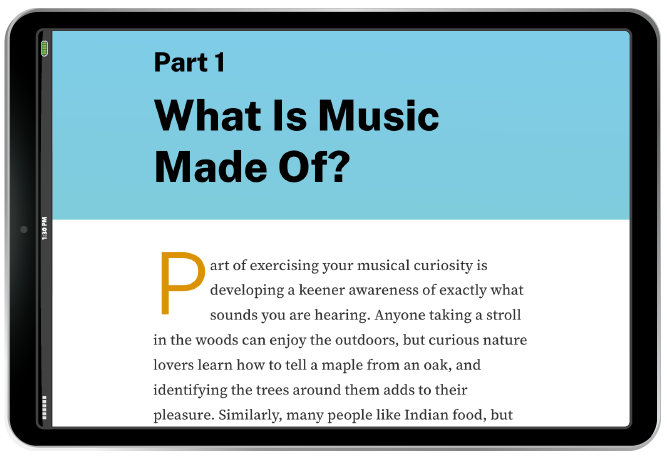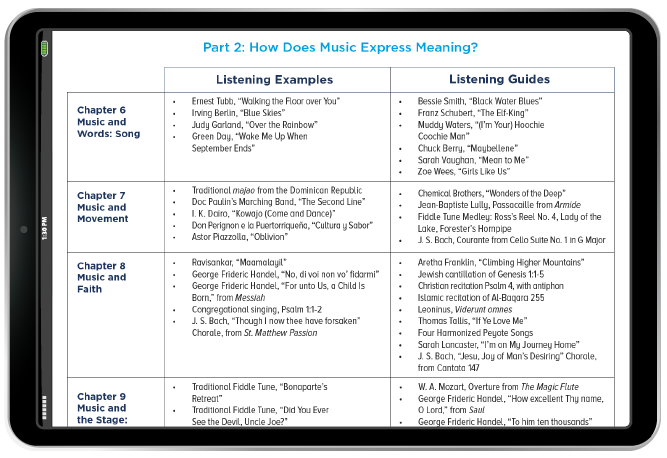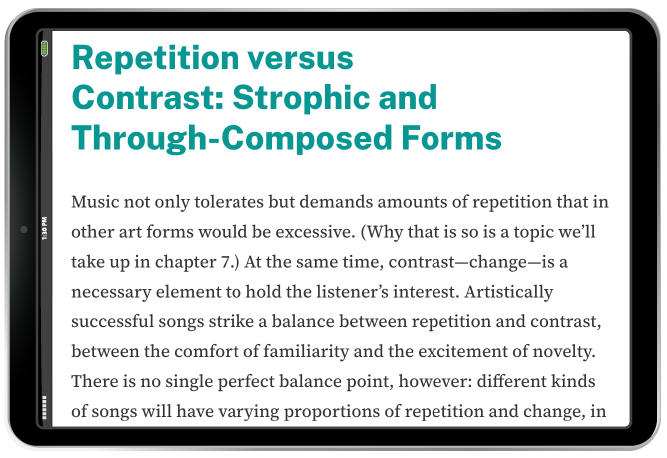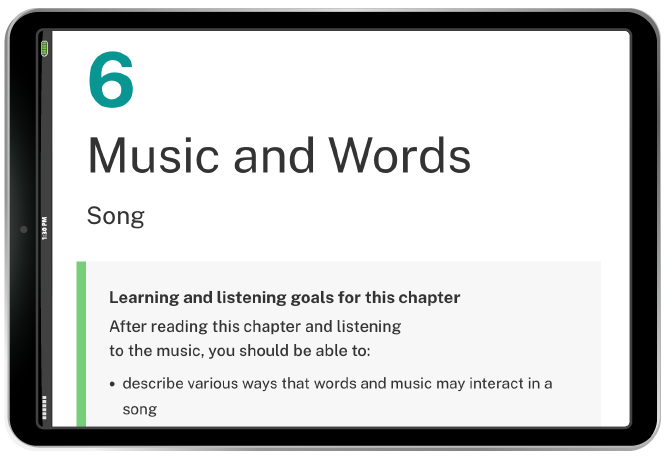

Inspire your students to be curious listeners
The Curious Listener is a new text that offers you an alternative approach to music appreciation, one that moves away from a traditional, chronological organization and instead helps your students build their critical listening skills in a carefully planned sequence.
Features of the First Edition

A question-based organization responds to student curiosity
The Curious Listener is uniquely organized around three questions: Why does music sound the way it does? How does music create meaning? How does music shape time? The Curious Listener equips students to answer these questions.

A broad repertoire introduces music across genre, time, and geography
To help students see connections across traditions and to engage them with more familiar music, The Curious Listener draws on a wide range of musical styles and genres: classical, popular, folk, jazz, and global.

A focus on building listening skills in a careful sequence
The Curious Listener is founded on the idea that listening to music can be taught the same way other skills are taught: by beginning with the basics and progressing from simplicity to complexity.
Meet the Author

Larry Hamberlin
is professor emeritus of music at Middlebury College, where he taught courses in music appreciation, Western classical music, American music, jazz, and popular music. His books include Tin Pan Opera and, with Richard Crawford, An Introduction to America’s Music.
Tour a Chapter

Watch a short tour of a chapter and the Norton Illumine Ebook available with the First Edition.
Instructors: Receive Digital Access
What Instructors are saying
“[The Curious Listener] provides an excellent overview of key issues, giving the novice and the more advanced student alike room to grow while also introducing them to a wide variety of musical practices. I also appreciate that there is no hierarchy here. Western art music is comfortably placed alongside traditions from other cultures, whether popular, vernacular, or art. The book explicitly collapses hierarchies.”
Travis D. Stimeling
West Virginia University
“What I like best about [The Curious Listener] are its focus on listening as a skill, the flexibility of the materials, and the organization around how people use music in various ways and the ways that allow the author to draw on a variety of musical styles and traditions that go well beyond the Western classical canon.”
Rose Pruiksma
University of New Hampshire
“[The Curious Listener] succeeds in meeting changing needs, particularly the need for a textbook that truly introduces students to music in a broad and varied way rather than focusing exclusively or predominantly on classical music or the traditional survey approach. It also addresses the need for building a solid listening foundation in a sequential way.”
Instructor at Metropolitan State University of Denver


Copyright © W. W. Norton & Company, Inc. 2026








